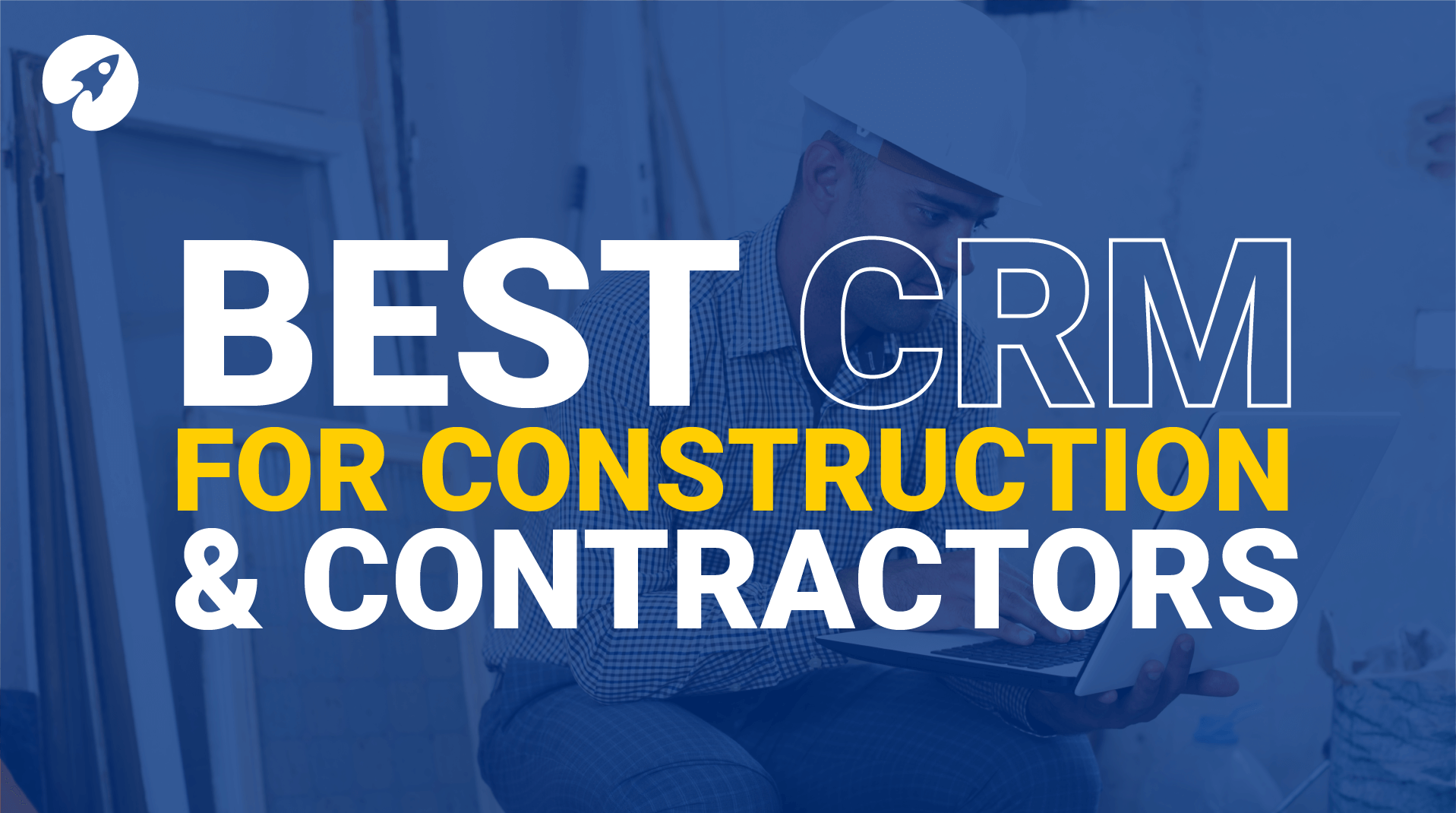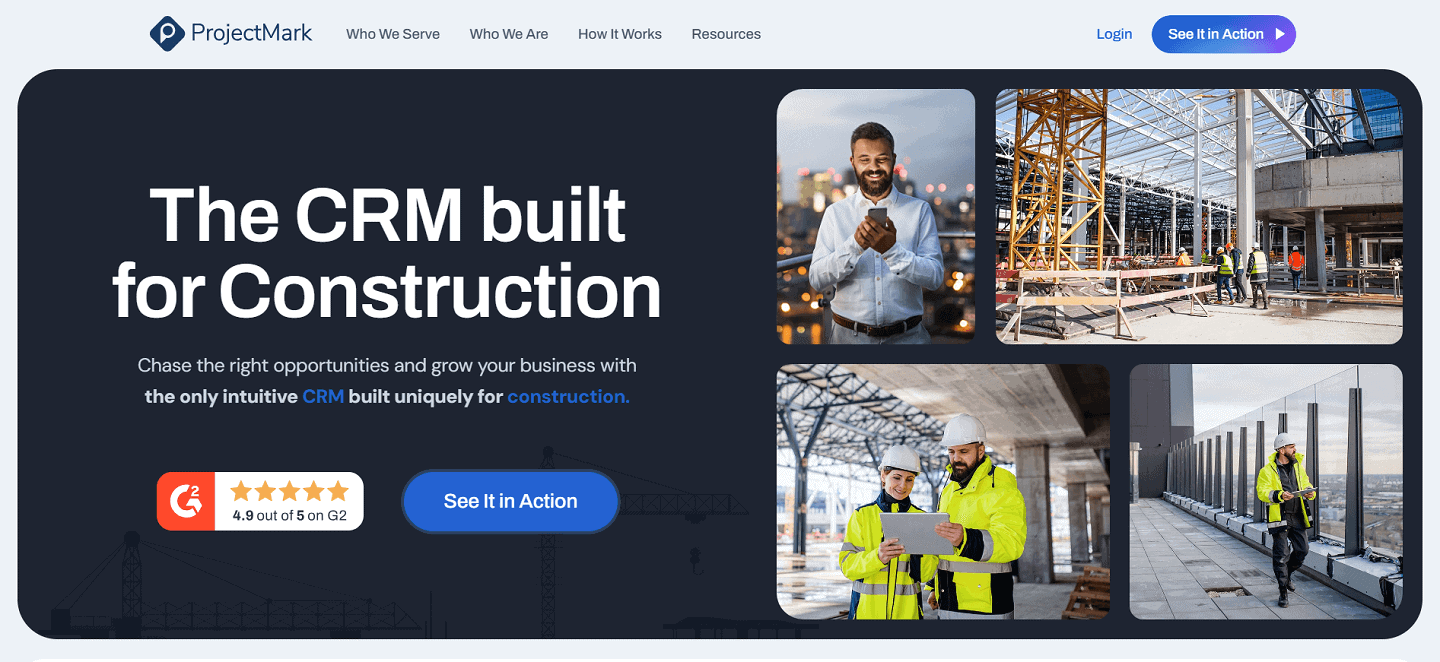Best CRM for Construction Business: In a competitive industry like construction, having the right CRM system can make all the difference. From project management to client communication, finding the best CRM tailored for construction businesses is crucial for success. Let’s dive into the key features and considerations that can help streamline operations and boost efficiency in the construction sector.
Introduction to CRM in Construction Business
Customer Relationship Management (CRM) systems play a crucial role in the construction industry by helping companies manage interactions with clients, streamline processes, and improve overall efficiency. CRM software is specifically designed to cater to the unique needs of construction businesses, offering a range of features tailored to the industry’s requirements.
Importance of CRM Systems in Construction
CRM systems are essential for construction companies as they provide a centralized platform to track leads, manage projects, and enhance communication with clients. By consolidating customer data and interactions, CRM software enables construction businesses to build stronger relationships with clients and stakeholders.
Benefits of CRM Software for Construction Companies
CRM software offers various benefits to construction companies, including project management tools, lead tracking capabilities, and client communication features. These functionalities help construction businesses streamline their operations, improve project delivery timelines, and enhance customer satisfaction.
Specific CRM Features for Construction Businesses
Some specific CRM features tailored for construction businesses include project tracking and management, bid management, document management, and mobile accessibility for field operations. These features are designed to address the unique requirements of construction projects and enhance overall productivity.
Key Features to Look for in a CRM for Construction Business
When selecting a CRM system for a construction business, it is crucial to look for key features that cater to the industry’s specific needs. Essential features include project management capabilities, lead tracking tools, client communication options, customization options, and integration capabilities with other construction tools.
Project Management and Lead Tracking
Project management features in CRM software allow construction companies to track project progress, assign tasks, and monitor deadlines. Lead tracking tools help businesses manage and nurture potential clients, ensuring a steady flow of new projects and opportunities.
Customization Options and Integration Capabilities

Customization options in CRM software enable construction companies to tailor the system to their specific requirements, workflows, and processes. Integration capabilities with project management software, accounting tools, and other construction-specific software ensure seamless data flow and enhanced collaboration across different platforms.
Comparison of CRM Software Offerings
There are various CRM software offerings available in the market, each with its unique features and capabilities. Construction companies should compare different CRM solutions based on their specific needs, budget constraints, and scalability requirements to choose the most suitable option for their business.
Integration Capabilities with Other Construction Tools

CRM systems can integrate with various construction tools, such as project management software and accounting tools, to streamline workflows and improve overall efficiency. These integrations enable seamless data sharing, enhanced communication, and better project coordination within construction companies.
Benefits of Integrating CRM with Accounting Tools
Integrating CRM with accounting tools in construction businesses facilitates better financial management, invoice tracking, and budget monitoring. By connecting CRM and accounting systems, construction companies can ensure accurate financial reporting, streamline billing processes, and improve overall project profitability.
Successful Integrations between CRM and Other Construction Software
Successful integrations between CRM systems and other construction-specific software have proven to enhance project delivery, improve communication, and streamline operations. Examples include integrating CRM with building information modeling (BIM) software, estimating tools, and scheduling applications to create a cohesive project management ecosystem.
Mobile Accessibility and Field Operations
Mobile accessibility is crucial for CRM systems in construction, as field workers often rely on mobile devices to access project information, update statuses, and communicate with team members. Real-time data access through mobile CRM applications enhances field operations, improves decision-making, and boosts overall project productivity.
Importance of Mobile Accessibility for CRM in Construction
Mobile accessibility ensures that field workers can access CRM data anytime, anywhere, enabling real-time collaboration, instant updates, and seamless communication. By providing mobile solutions, construction companies can empower their field teams, increase efficiency, and deliver projects more effectively.
Real-Time Data Access and Field Operations
Real-time data access through mobile CRM applications allows field workers to access project information, update statuses, and communicate with team members on the go. This capability improves field operations, enhances project coordination, and enables quick decision-making, leading to better project outcomes and client satisfaction.
Data Security and Compliance Considerations
Data security is paramount in CRM systems for construction businesses, as they deal with sensitive client information, project details, and financial data. Ensuring data security and compliance with industry regulations is essential to protect confidential data, maintain client trust, and uphold legal requirements.
Importance of Data Security in CRM Systems for Construction
Data security in CRM systems is critical for construction businesses to safeguard client information, project data, and financial records from unauthorized access or breaches. By implementing robust security measures, encryption protocols, and access controls, construction companies can protect sensitive data and mitigate cybersecurity risks.
Compliance Requirements in the Construction Industry, Best crm for construction business
The construction industry has specific compliance requirements related to data privacy, project documentation, and financial reporting. Construction companies must adhere to industry regulations, such as the General Data Protection Regulation (GDPR) and industry-specific standards, to ensure compliance, data integrity, and legal adherence.
Tips for Ensuring Data Security and Compliance in CRM Selection

When choosing a CRM system for a construction business, it is essential to prioritize data security, compliance, and regulatory requirements. Tips for ensuring data security and compliance include conducting security assessments, implementing data encryption, defining access controls, and training employees on data protection best practices.
Final Wrap-Up: Best Crm For Construction Business
In conclusion, choosing the best CRM for construction business can significantly enhance productivity and effectiveness in managing projects and client relationships. By prioritizing key features, integration capabilities, mobile accessibility, and data security, construction companies can optimize their operations and stay ahead of the curve in a rapidly evolving industry landscape.
Questions and Answers
What makes a CRM system suitable for construction businesses?
A CRM system tailored for construction businesses should have features like project management, lead tracking, and client communication specific to the industry’s needs.
How important is mobile accessibility for CRM in construction?
Mobile accessibility is crucial for field workers to access real-time data and improve field operations efficiently in the construction sector.
What are some examples of successful integrations between CRM and construction-specific software?
CRM systems can integrate seamlessly with project management software and accounting tools to streamline operations and improve efficiency in construction projects.
How can construction companies ensure data security and compliance when choosing a CRM?
Construction companies should prioritize data security features and ensure compliance with industry-specific regulations to safeguard sensitive information and maintain trust with clients.
